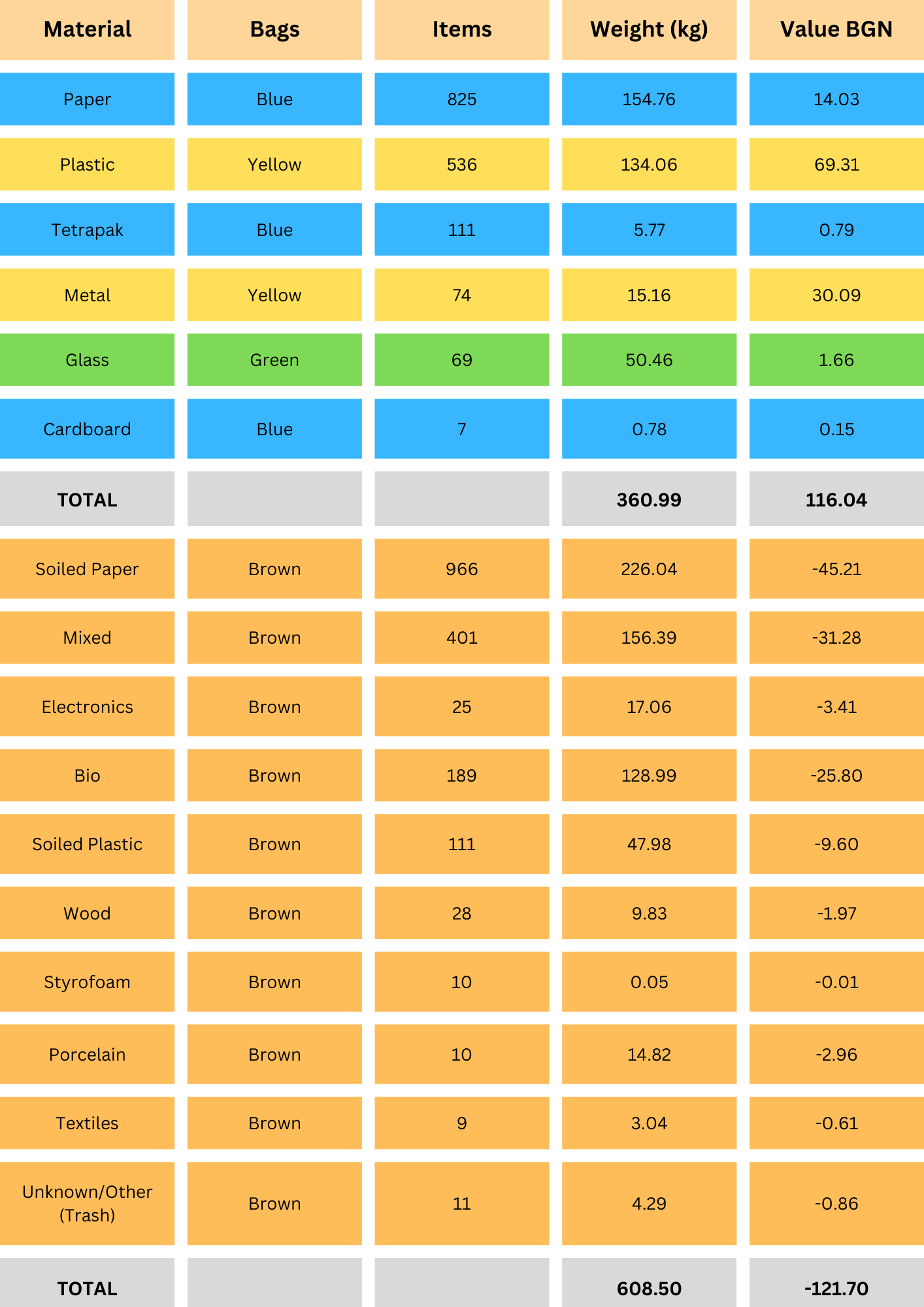
Kiril Gantchev
Introduction
In our journey towards enhancing waste management, we've discovered that an efficient solution lies in unifying all stakeholders involved in waste handling rather than just focusing on sorting. Our recent case study dives into this challenge, highlighting how a clever intervention can incentivize better practices and streamline waste management "on the edge."
The Problem
Traditional waste management practices, particularly in busy co-working spaces, suffer from a lack of efficiency and unity among the stakeholders. The cleaning staff, a crucial link in the waste handling chain, often lacks the motivation to separate waste and struggles to keep recyclable and non-recyclable waste apart. This ineffective system frequently results in recyclable waste ending up in landfills, squandering potential value and increasing the workload of the cleaning staff. This study aims to address these challenges and enhance the waste management process.

The incentive program offers an easy way for the cleaning staff to make an impact, reduces their workload, and rewards them!

The Experiment
Our experiment revolved around a unique Cleaning Staff Incentive Pilot Program facilitated by Ameru's automated smart bins. Four of these bins, equipped with advanced AI waste sorting and tracking capabilities, were placed in WorkBetter, a brand-new co-working space in Sofia, Bulgaria.
The cleaning staff was motivated by an easy-to-follow procedure and rewards system:
- Take the color-coded bag out of the bin
- Take the color-coded bag to the correct outside dumpster
- "Proof of Disposal" by taking a picture/scanning the QR code of the bag and the bin
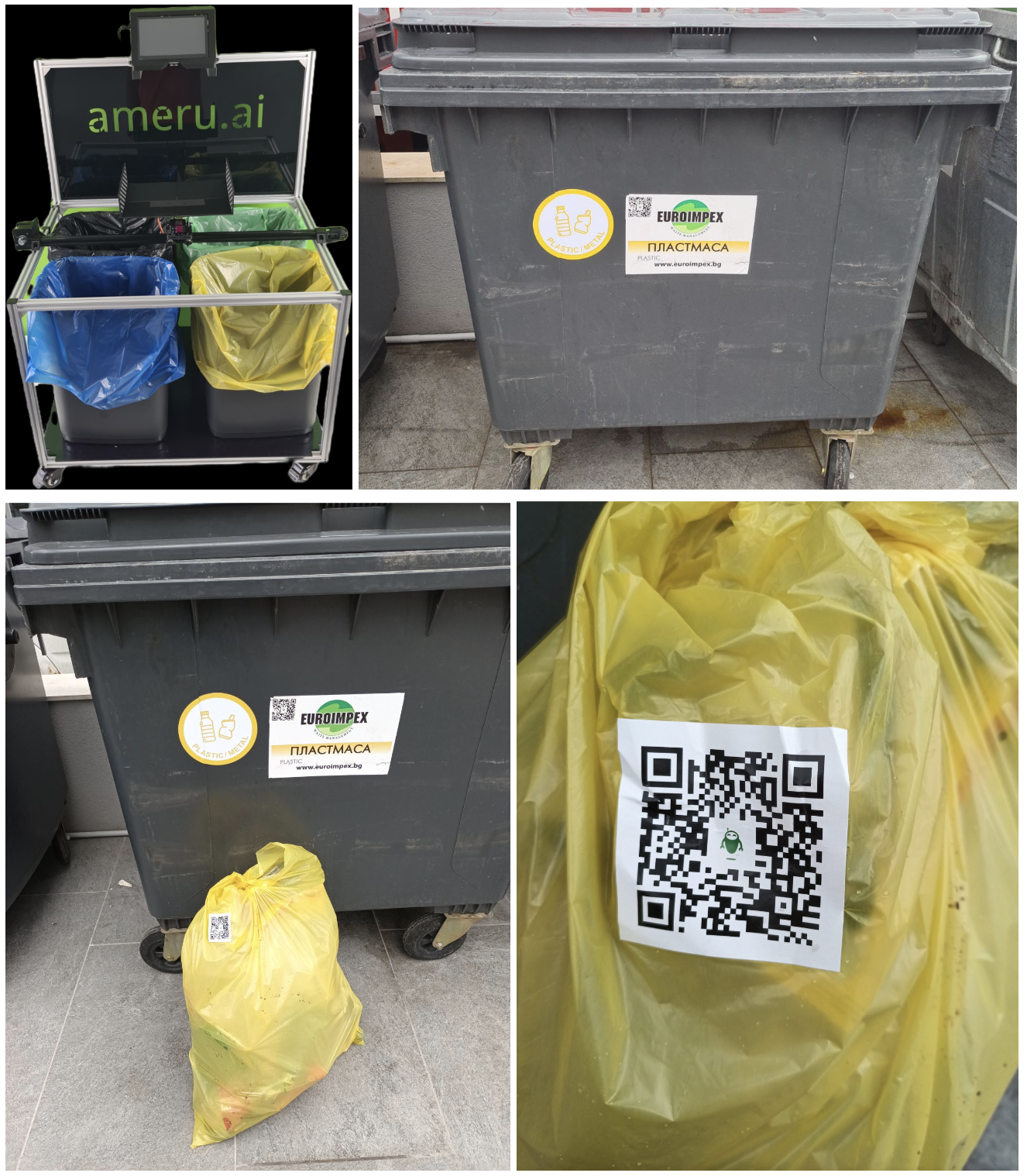
This new approach not only reduces the workload of the cleaning staff by keeping recyclable materials separate from landfill waste but also empowers them to make a significant environmental impact, all while earning rewards!
The Venue
WorkBetter, a renowned co-working space in Sofia, was selected as the venue for this study. Over one month, from May 1, 2023, to May 31, 2023, we observed the impact of four strategically placed smart bins. We positioned each smart bin in the kitchen, where we estimate that it captures about 60-80% of the waste generated in the co-working space. There are 4 kitchens, 1 on each floor.
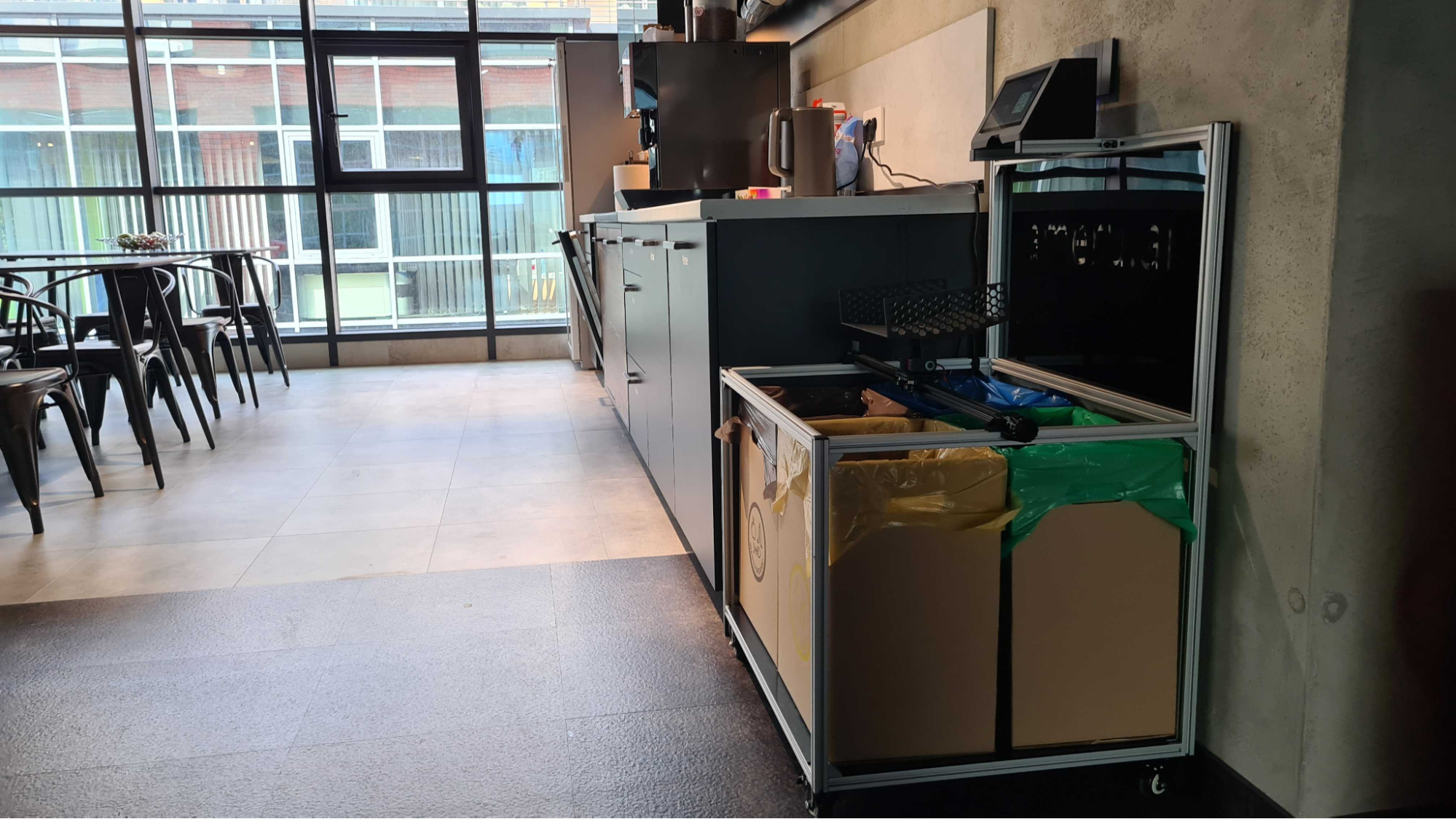
Results and Observations
We have categorized our findings into key impact areas to represent our results coherently. Here is a screenshot from the Ameru Waste Analytics Dashboard that highlights the flow of the captured waste:
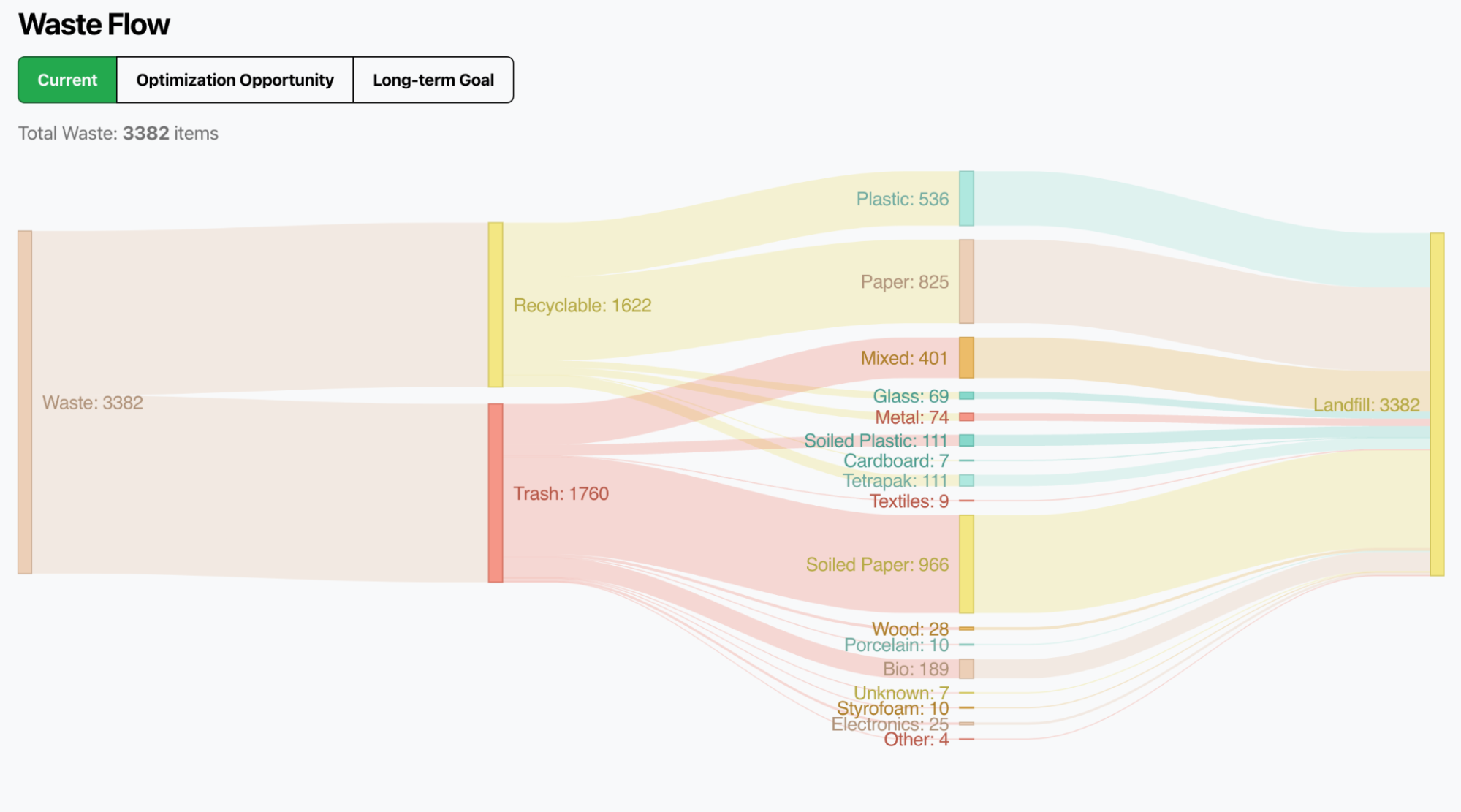
Key Metrics
The table below provides a snapshot of the key metrics gathered during our study at WorkBetter:
Key Metrics WorkBetter
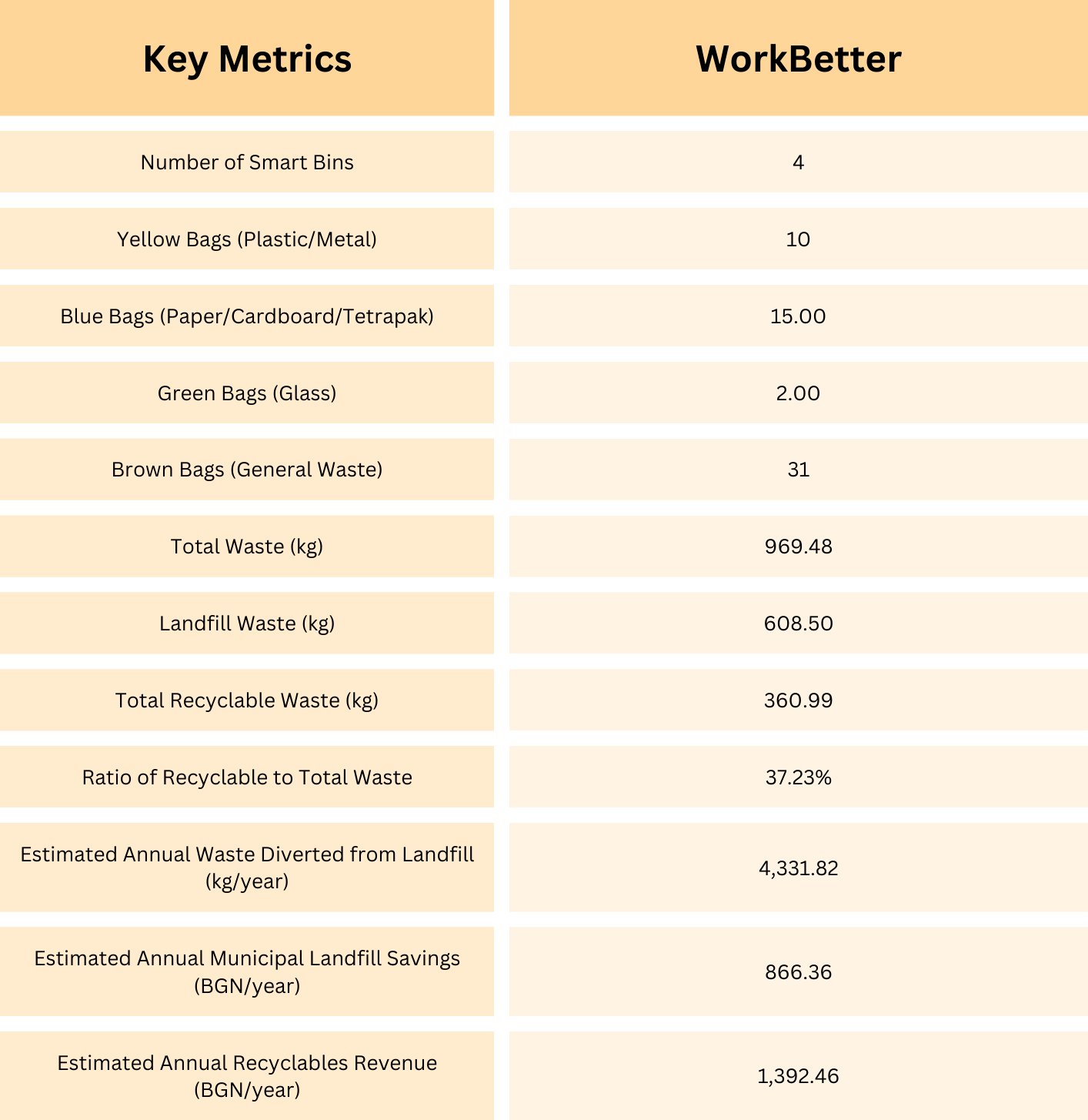
Waste Generation and Segregation
Throughout the experiment, WorkBetter generated a total of 3382 waste items, comprising 1622 recyclable items and 1760 general waste items. The smart bins effectively segregated the waste, ensuring that recyclable materials didn't end up in landfills. Introducing a rewards system significantly boosted the cleaning staff's motivation and participation, leading to a more efficient waste management system.
Waste Diversion Outcomes
The smart bins and the incentive program resulted in impressive waste diversion outcomes. The recyclable to total waste ratio stood at 37.23%, diverting an estimated annual waste of 4,331.82 kilograms from landfill on a yearly basis. This led to considerable savings for the municipal landfill and demonstrated that there is a potential to generate revenue from the recyclables.
Conclusion and Future Outlook
Our case study demonstrated the effectiveness of an incentivized waste management system. The significant improvements observed at WorkBetter highlight the potential of this approach to enhance recycling rates, reduce landfill waste, motivate cleaning staff, and increase overall waste management efficiency.
We believe implementing this approach in diverse settings, such as larger office complexes or residential buildings, could dramatically improve waste management. The evident improvement in waste management efficiency also emphasizes the need for more automated smart bins in the future.
Data
Waste Item Observations
